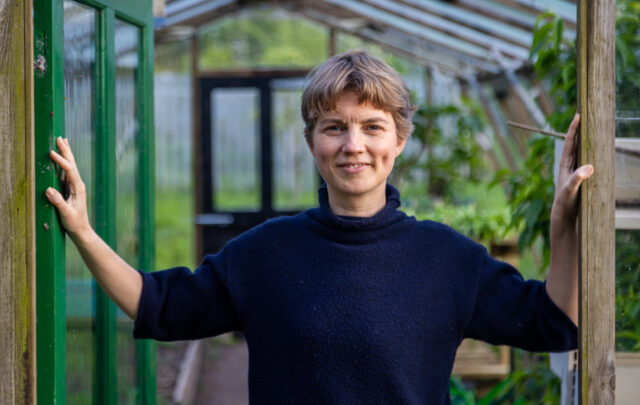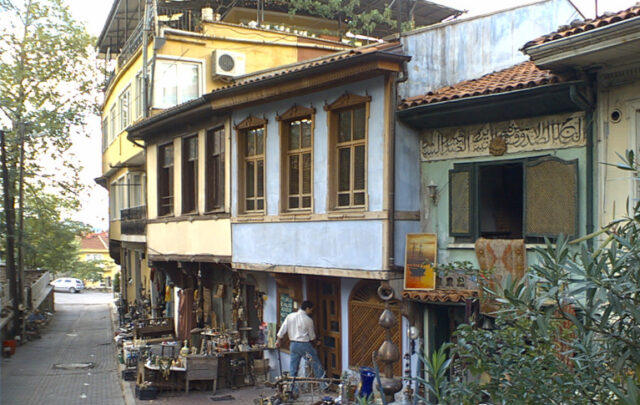Click on the headline (link) for the full text.
Many more articles are available through the Energy Bulletin homepage
China, India seen setting stage for environment-friendly world
Agence France Presse via Common Dreams
Energy guzzlers China and India are often blamed for some of the world’s environmental problems, but a new study says the two most populous nations may well set the stage for a clean and green Earth.
The two countries are mastering energy-efficient technologies, implementing cheap and environmentally-responsible transportation systems, and adopting new water harvesting techniques as models for a sustainable economy, says the annual report of the US-based Worldwatch Institute.
“China and India are positioned to leapfrog today’s industrial powers and become world leaders in sustainable energy and agriculture within a decade,” the president of the environmental research group, Christopher Flavin, predicted at a news conference.
“We were encouraged to find that a growing number of opinion leaders in China and India now recognize that the resource-intensive model for economic growth can’t work in the 21st century,” he said
(12 January 2005)
Commentary by Joel Makower at WorldChanging: China, India, and the ‘State of the World’ .
Doomsday vault to avert world famine
Fred Pearce, New Scientist
WITHIN a large concrete room, hewn out of a mountain on a freezing-cold island just 1000 kilometres from the North Pole, could lie the future of humanity.
The room is a “doomsday vault” designed to hold around 2 million seeds, representing all known varieties of the world’s crops. It is being built to safeguard the world’s food supply against nuclear war, climate change, terrorism, rising sea levels, earthquakes and the ensuing collapse of electricity supplies. “If the worst came to the worst, this would allow the world to reconstruct agriculture on this planet,” says Cary Fowler, director of the Global Crop Diversity Trust, an independent international organisation promoting the project.
New Scientist has learned that the Norwegian government is planning to create the seed bank next year at the behest of crop scientists. The $3 million vault will be built deep inside a sandstone mountain lined with permafrost on the Norwegian Arctic island of Spitsbergen. The vault will have metre-thick walls of reinforced concrete and will be protected behind two airlocks and high-security blast-proof doors. It will not be permanently manned, but “the mountains are patrolled by polar bears”, says Fowler.
(12 January 2006)
Commentary by Jamais Cascio of WorldChanging: Making Backups.
Personal responsibility in an era of imminent depletion
(“Future as a Verb”)
Jon S., Peak Energy (Seattle)
…The impediments humans battle in maintaining civilization are primarily cultural, not technical, and these barriers thus represent a fatal defect in our so-called civilization which MUST be resolved.
Unfortunately, taking a postive view of the overall global situation is not enough for the individual. One cannot avoid or duck planning for a shitstorm if all the signs point towards a shitstorm. There is the question of how one should prepare as an individual.
Everything one does in their life on planet earth in 2006 ideally will serve a dual purpose — living a satisfying life in the here and now, yet at the same time preparing for the reasonable spectrum of negative possibilities.
Living in a negative future before it arrives is NOT a healthy way to exist. It also feeds that negative future.
Enjoy the wine from South America, the cigars from Cuba, the delicacies and knick-knacks shipped 4000 miles to your door. Take a trip. Don’t overlook thoughtful and simple technical solutions, such as wind energy and conservation.
Meanwhile, identify and learn skills that might become useful in the near future. Plant your victory garden. Connect with communities. Look into modes of living that require less energy. Remember that food, water and a sweater are the bare minimum; everything beyond that is a luxury.
Here are a few examples of positive activities in the Pacific Northwest…
(14 January 2006)
Jon S. is responding to a question posed by an Energy Bulletin reader, John Rawlins, a college professor whose students were “begging for ideas they can implement locally.” -BA
Green marketing and the ‘4/40 Gap’
Joel Makower, WorldChanging
…A new publication from the United Nations Environment Programme, Talk the Walk: Advancing Sustainable Lifestyles through Marketing and Communications, attempts to close the 4/40 Gap by promoting the use of mainstream communications and marketing strategies to change consumer attitudes. Say the authors: “The key to overcoming barriers to sustainable consumption while making a profit definitely constitutes the Holy Grail for marketers, with potential for delivering double-digit growth for years to come.”
Such bottom-line-enticing come-ons, the authors’ earnestness, and the publication’s slick graphics notwithstanding, it’s a tough sell.
Sure, there’s some good stuff here, including a gallery of advertising approaches promoting some aspect of sustainability, from the subtle to the not-so-subtle…
But, speaking as a corporate communications strategist, Talk the Walk doesn’t reveal many secrets — and the insight it does offer often seems more sinister than sincere…
(15 January 2006)
Spencer for Tire
Kipchoge Spencer of Xtracycle and Worldbike answers Grist’s questions
Grist magazine
Q: What work do you do?
A:I’m president of Xtracycle Inc. and cofounder of Worldbike. I’m also lead singer of the Ginger Ninjas.
Q: What does your organization do?
A: Xtracycle invented and makes car-trip-replacing, life-enhancing, sport-utility bicycles, long bikes, and the FreeRadical Hitchless Trailer — for toting your kids to school, loading up with groceries, or making an off-road camping trip to the hills. Acts like a bike but works like a truck.
We started the Worldbike nonprofit to reach the people who most need but can least afford a utilitarian bike. We’re currently working in Kenya, modifying existing bicycles with a locally produced version of our cargo extension. By documenting the increased earning power and improved quality of life of Kenyans with simple load-carrying bikes, we plan to make the case for major investment in this simple technology all around the developing world.
Q: What, in a perfect world, would constitute “mission accomplished”?
A: Mission accomplished is when mass pop culture realizes riding your bike to work is the coolest way to get there.
(9 January 2006)
Spencer also answers questions from Grist readers.





